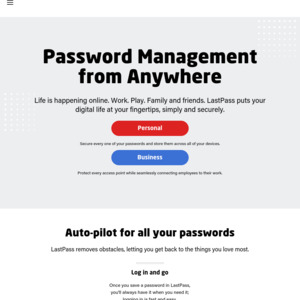Lastpass have been breached again, this time vault data has been exposed via backups.
Sounds like not all data was encrypted, so even without your master password attackers can tie your billing info to a list of sites you have saved.
Anyone with a weak master password might want to go through all their saved sites and get resetting.
https://blog.lastpass.com/2022/12/notice-of-recent-security-…
https://www.bleepingcomputer.com/news/security/lastpass-hack…

@ESEMCE: iCloud Keychain (password manager) is very secure. No point dunking on it just because you don't like Apple.